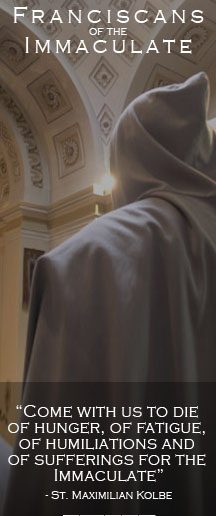St. Maximilian Mary Kolbe wrote about the saints and sanctity quite often. His first rule of life was “I must become a saint, and a great saint.” And, of course he did become a great saint. To read now what his aspiring and growing saint had to say about holiness is not only stirring but encouraging.
As we might expect, St. Maximilian tells us that to become holy is our duty to God. It is not an option. But his reflections on saints and sanctity also encourage us to persevere in our obligations to God, because they are the words of someone who was like us and who became a saint, telling us that holiness is both possible and the true path to happiness.
In an article he wrote in 1922 for his popular magazine The Knight of the Immaculate, St. Maximilian compared and contrasted secular genius and sanctity. He said that in many ways great men of the world and saints are the same. They are preeminent men who rise above those around them and often attract attention because they are different. They are extraordinary in their level of interest and concentration. They have lofty goals and the necessary confidence to achieve them. Obstacles and setbacks do not stop them. They are opposed not only by enemies, but, what is far more difficult, even by their friends and those from whom they expect to receive support. But they keep going and their eventual success is a source of inspiration for generations of other people who aspire to be like them.
But secular greatness and sanctity are also vastly different, St. Maximilian says. The motivation of the secular genius and the saint are radically different. The one dreams of earthly glory, the other seeks to do the will of God.
Often the great man will direct all his attention toward his particular talent or goal, say succeeding in politics, and while he may do much good, he often neglects the things that are most important, such as his duties to his family. Professional artists and athletes, for example, have a reputation for excelling in their particular talents but of being unbalanced in their personal lives. This is precisely because the secular man often seeks his own glory at the expense of everything else, including those he is bound to love.
On the other hand, the saint focuses himself on the glory of God. He strives to perfect himself in all his thoughts, words and deeds, and tries to fulfill the will of God in all his choices by becoming perfect. He does this, first of all, by the performance of his duties and then by developing his Godgiven talents in order to serve God and his neighbor. The saint is a balanced man. It is not sanctity to go to Church but neglect one’s duties, or to fast but not practice charity. Religiosity is not itself true sanctity. True religion is the perfect fulfillment of God’s will in all things.
Another difference, according to St. Maximilian, between the worldly genius and the saint is that one achieves only a moment of happiness or a counterfeit of it, while the other achieves the greatest happiness possible in this life and perfect happiness in the next. For the great man of the world, the Cross is a burden to be dragged or thrown off in disgust. For the saint, the Cross is the easy yoke and light burden of Sweet Jesus who desires to give us rest (cf. Mt 11:30). The beatitudes, that is, the blessings of God by which we become happy, are summarized by the words: Blessed are they that suffer persecution for justice’ sake, for theirs is the kingdom of heaven (Mt 5:10). St. Maximilian called this “suffering willed out of love.” It is the destiny of the saint: perfect holiness and happiness. The secular man, no matter how great, cannot understand this. For the saint, no matter what life brings, good or ill, the opportunity to serve God is always present.
One thing we can learn from the great men of the world is that their success did not come without many failures. A great man, Abraham Lincoln, who was at least Christian, said to “always bear in mind that your own resolution to succeed is more important than any other one thing.” Great men succeeded because they persevered through failure. In 1910, Teddy Roosevelt at the Sorbonne in Paris said the following:
“It is not the critic who counts, not the man who points out how the strong man stumbled, or where the doer of deeds could have done better. The credit belongs to the man who is actually in the arena, whose face is marred by dust and sweat and blood, who strives valiantly, who errs and comes short again and again, who knows the great enthusiasms, the great devotions, and spends himself in a worthy cause, who at best knows achievement and who, at the worst, if he fails at least fails while daring greatly, so that his place shall never be with those cold and timid souls who know neither victory nor defeat.”
If men of the world were able to succeed in spite of failure, why cannot we, who put all our trust in God and the Immaculate? Blessed Mother Teresa said that we do not have to be successful but only faithful. And that is the key. The success of the saint is not measured by what we see but by what God sees, and what God sees is our hearts. All we need to do is keep fighting and carrying our Cross.

